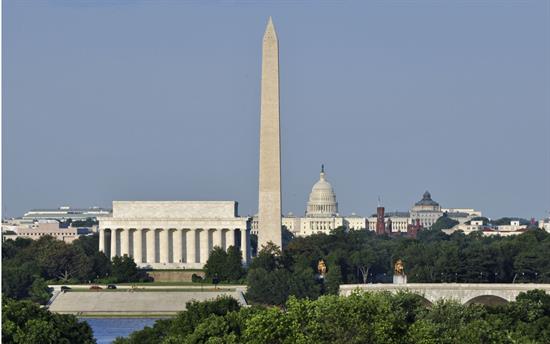Opinion Pieces
A return to statesmanship
Washington,
May 25, 2018
Note: This article originally appeared in The Washington Times on May 25, 2018. You won’t hear about it from the media as much, but I believe there is an undercurrent to all of these challenges — a less visible but equally chilling crisis of values. America today has a crisis in trust, transparency and truth just as much as the more tangible issues of gun violence or Russian interference in our elections. I’ve been writing about this in a series of opinion pieces because I believe this crisis of values is at the root of many of the controversies swirling in our national headlines today. We see evidence of this crisis in the dysfunction that occurs when government officials seem more interested in driving a political narrative through the Russian investigations than seeking the truth, and more invested in searching for evidence to support a pre-drawn conclusion rather than reaching a conclusion only after finding evidence. We see it in double standards. For example, I asked former FBI Director James Comey in an open Intelligence committee hearing whether I would be investigated if I met with a foreign ambassador, and he answered that he is “not in the business of giving advice.” Yet, less than a year earlier, he issued a statement advising prosecutors not to bring charges against former Secretary of State Hillary Clinton for her mishandling of classified information in connection with private email servers. We see it in the deep distrust in our institutions that develops when the American people witness the FBI and Department of Justice ignoring subpoenas from the House Judiciary Committee and House Permanent Select Committee on Intelligence to gain access to documents critical to their constitutional duty of oversight. Congress, the representatives of the people, created these agencies and Congress has oversight over them — not the other way around. As long as our nation remains locked in this country-wide epidemic of hyper-partisanship and political gamesmanship, we will only sink deeper into our crisis of values. Instead, we must collectively take a moment to remember what our founding core values are. We must remember that, while we may battle bitterly over policy and politics, we all owe allegiance to a higher set of values outlined in the Declaration of Independence and given the structure to govern through our Constitution. I like to think about it like two rival sports teams squaring off. As passionately as they strive for victory, they both compete within the confines of certain agreed-upon boundaries, understanding that if the players throw those rules to the wind, the entire sport collapses. No one wins. In sports, we call this understanding good sportsmanship, but in politics, it is what we call statesmanship. It is the understanding that while political parties may disagree vehemently over policy, we have all agreed to play within the structure of our democratic republic. When those shared values crumble or the system is weaponized to benefit one party over the other, both parties lose. We the people lose. Our nation stagnates and becomes steeped in dysfunction. That is because the heart and soul of our constitutional republic has always been an ultimate allegiance to the overarching ideals of our democratic system and the institutions carefully constructed to uphold it — regardless of political party. For me, the best examples of this mindset are not found in the federal government, but rather in the ranks of the U.S. armed forces. The emphasis is on performing jobs without personal politics and, at the end of the day, members never question each other’s commitment to die for our country. They are able to come together, because duty to country comes first. Each has sworn to “support and defend the Constitution of the United States against all enemies, foreign and domestic; that I will bear true faith and allegiance to the same.” There is strength in that shared bond. That’s the very same oath we swear in the U.S. House of Representatives and throughout the rest of the federal government, although our servicemembers often do a better job of upholding it, in my view. The oath is simple and direct, but it is the crux of true statesmanship because without that shared bond, we are weakened. When duty to country doesn’t come first, we’re left with dysfunction. When the rule of law is not upheld, we end up with double standards. When the integrity of our institutions is impugned, the result is deep distrust. The American people have had enough of double standards; it is time for higher standards. As a nation, we need to recommit to the shared values that forged the foundation for our great democratic republic. When people put politics ahead of God, family and country, we are at risk. We need to stop putting momentary political or personal gain above the integrity of our institutions. We need to once again join our servicemembers in saying, “Politics is one thing; our duty to our country comes first.” We need a return to statesmanship. |


